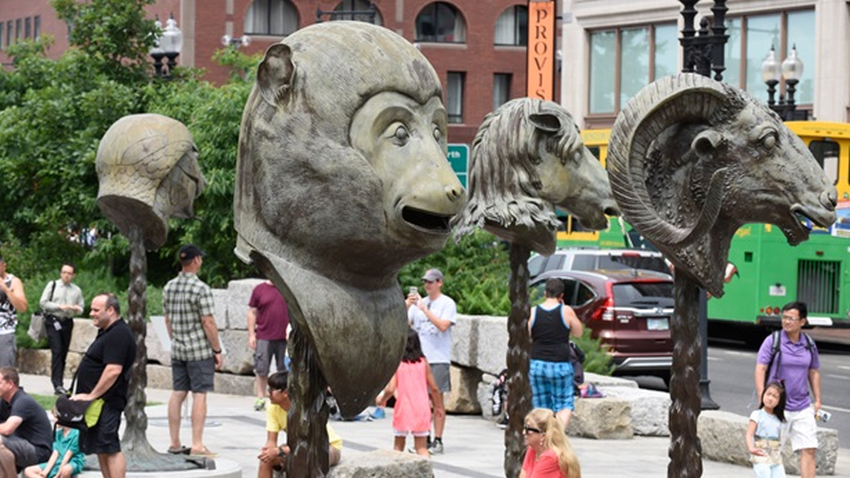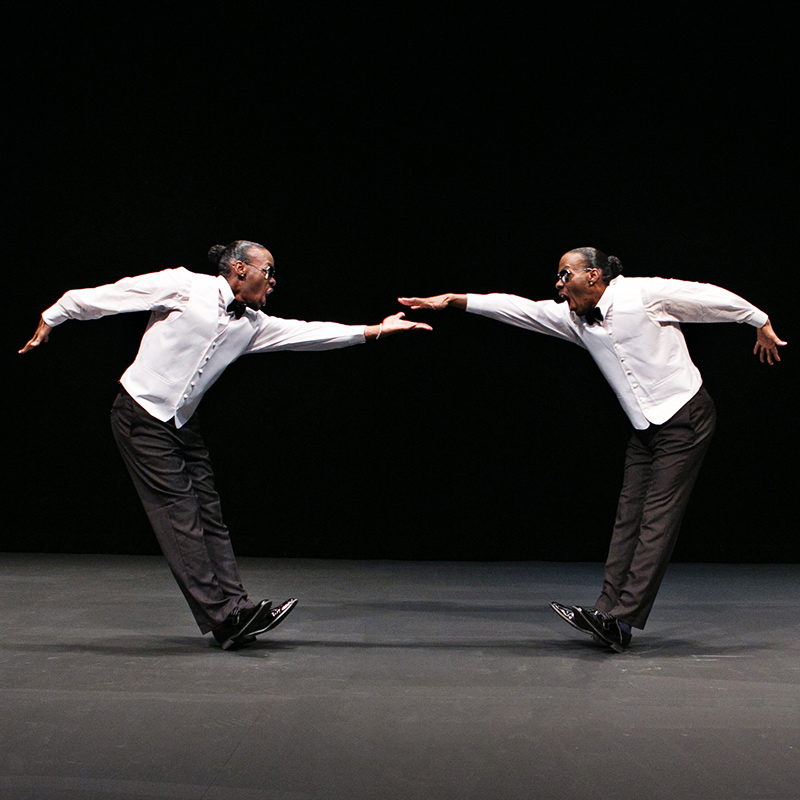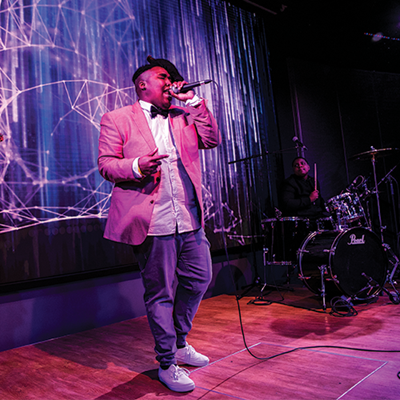Keeping Arts & Culture Vibrant During COVID-19
How TBF is supporting one of the hardest hit sectors of the pandemic.
May 6, 2020
By Eva Rosenberg, Interim Director, Arts and Culture
This post is part of a series of occasional blog posts from our strategy leaders to share how we are responding to the ongoing pandemic. We are also highlighting what our grantee partners are experiencing and how they are adapting to the long-term impact of COVID-19 on Greater Boston and the nonprofit sector. Here, Eva Rosenberg, Interim Director, Arts and Culture, reflects on how that team’s work has pivoted since March.
When I joined the Arts and Culture team at TBF last fall, my focus was on stewarding a vibrant body of work already in full swing. This spring, while I was setting up introductory meetings with organizations and community leaders, coronavirus changed the world -- and the work.
Since that time, the team and I have been laser-focused on immediate needs -- adapting ongoing programs, reaching out to prior and current grantees, and connecting people to resources. But, as a mentor reminded me, we should also lift our heads, look around, and be in conversation more broadly about what we are seeing and doing. To that end, I’m taking stock of what the Arts and Culture team has done so far as we begin to look toward the future.
Our first focus was on the ecosystem of support for individual artists. Through programs like Live Arts Boston, Next Steps for Boston Dance, and the Brother Thomas Fellowship, we have engaged with hundreds of artists, groups, and small, artist-led organizations over the past three years. The cultural sector was immediately impacted by coronavirus. Knowing that artists of color (including many of our grantees) are even more vulnerable due to wealth disparities and other issues of systemic racism, we quickly invested in direct relief for artists and creative workers in several ways.
The broader Foundation and its donors have also provided other funds. The Record Co., a long-time grantee, received a $25,000 grant for their Music Maker Relief Fund through the first round of support from TBF’s COVID-19 Response Fund, and dozens of donors with funds at the Foundation have also stepped up their support for organizations in need. This investment reflects the Foundation’s long-held commitment to the arts sector and our belief that artists and their work are fundamental to a thriving, culturally vibrant city. We also know that artists, many of whom are gig workers operating in a national context that doesn’t fully value their contributions, are both uniquely vulnerable to the massive shifts in society and the economy that the pandemic has brought on, and more often isolated from programs and services designed to support small businesses and entrepreneurs.
In recognition of those challenges, we have also been in constant communication and collaboration with our colleagues at the Arts & Business Council, and their Volunteer Lawyers for the Arts staff, about helping freelancers/independent contractors/gig workers access Pandemic Unemployment Assistance (PUA). This program, part of the CARES Act, provides temporary unemployment benefits to those suffering income losses and working outside a salaried context (and therefore ordinarily not eligible). Because of A&BC’s intense preparation, when PUA opened in the state of Massachusetts on April 20, the VLA team was already prepared to support the sector through webinars and 1:1 technical assistance to help artists navigate a system that is not ordinarily designed to account for the multiplicity of ways in which cultural workers make a living.
Finally, we had to decide how to proceed with the 2020 round of Live Arts Boston grantmaking, which was already underway when the crisis began. We examined several options for fundamental changes to the program. Ultimately, we decided to maintain the timeline, make the process for applicants and reviewers more flexible, and stick to our plan to announce grantees in June. At this time of upheaval for the sector, we are expecting that funded projects will shift and change, and the LAB team will adapt our technical assistance and support accordingly. But we remain committed to making Live Arts Boston grants to support projects in 2020, because we know that the Greater Boston area’s diverse artists need support to keep creating and audiences need new work to challenge and inspire them – more so now than ever.
This post is part of a series of occasional blog posts from our strategy leaders to share how we are responding to the ongoing pandemic. We are also highlighting what our grantee partners are experiencing and how they are adapting to the long-term impact of COVID-19 on Greater Boston and the nonprofit sector. Here, Eva Rosenberg, Interim Director, Arts and Culture, reflects on how that team’s work has pivoted since March.
When I joined the Arts and Culture team at TBF last fall, my focus was on stewarding a vibrant body of work already in full swing. This spring, while I was setting up introductory meetings with organizations and community leaders, coronavirus changed the world -- and the work.
Since that time, the team and I have been laser-focused on immediate needs -- adapting ongoing programs, reaching out to prior and current grantees, and connecting people to resources. But, as a mentor reminded me, we should also lift our heads, look around, and be in conversation more broadly about what we are seeing and doing. To that end, I’m taking stock of what the Arts and Culture team has done so far as we begin to look toward the future.
Our first focus was on the ecosystem of support for individual artists. Through programs like Live Arts Boston, Next Steps for Boston Dance, and the Brother Thomas Fellowship, we have engaged with hundreds of artists, groups, and small, artist-led organizations over the past three years. The cultural sector was immediately impacted by coronavirus. Knowing that artists of color (including many of our grantees) are even more vulnerable due to wealth disparities and other issues of systemic racism, we quickly invested in direct relief for artists and creative workers in several ways.
First, we accelerated funding for our 2020 Next Steps grantees and removed restrictions on its use. Simultaneously, we reallocated just over $10,000 in other funds set aside for planned grantee gatherings and contributed that money to seven local artist relief funds. I’m particularly proud that we were able to partner with the Aliad Fund, a donor-advised fund at the Boston Foundation, to provide seed funding for the Boston Dance Alliance’s Dance Relief Fund, which provided emergency stipends for dancers, choreographers, dance teachers and teaching artists in the initial days of the pandemic and local shutdown. Helping catalyze a fund to support those working in this chronically under-supported discipline is in line with our multi-year, strategic investments in local and regional dance. We are now working to coordinate ongoing data collection and impact reporting efforts among the ten local artist relief funds of which we are aware.
The broader Foundation and its donors have also provided other funds. The Record Co., a long-time grantee, received a $25,000 grant for their Music Maker Relief Fund through the first round of support from TBF’s COVID-19 Response Fund, and dozens of donors with funds at the Foundation have also stepped up their support for organizations in need. This investment reflects the Foundation’s long-held commitment to the arts sector and our belief that artists and their work are fundamental to a thriving, culturally vibrant city. We also know that artists, many of whom are gig workers operating in a national context that doesn’t fully value their contributions, are both uniquely vulnerable to the massive shifts in society and the economy that the pandemic has brought on, and more often isolated from programs and services designed to support small businesses and entrepreneurs.
In recognition of those challenges, we have also been in constant communication and collaboration with our colleagues at the Arts & Business Council, and their Volunteer Lawyers for the Arts staff, about helping freelancers/independent contractors/gig workers access Pandemic Unemployment Assistance (PUA). This program, part of the CARES Act, provides temporary unemployment benefits to those suffering income losses and working outside a salaried context (and therefore ordinarily not eligible). Because of A&BC’s intense preparation, when PUA opened in the state of Massachusetts on April 20, the VLA team was already prepared to support the sector through webinars and 1:1 technical assistance to help artists navigate a system that is not ordinarily designed to account for the multiplicity of ways in which cultural workers make a living.
We have been particularly focused on supporting our 165 prior LAB grantees, and expanded our team of LAB advisors to make sure each past grantee has access to responsive, 1:1 support. I’ve been emailing the grantee “alum” email list as frequently as two or three times a week with resources and information, and will keep that up as long as there is news to share and our sharing it seems helpful.
Finally, we had to decide how to proceed with the 2020 round of Live Arts Boston grantmaking, which was already underway when the crisis began. We examined several options for fundamental changes to the program. Ultimately, we decided to maintain the timeline, make the process for applicants and reviewers more flexible, and stick to our plan to announce grantees in June. At this time of upheaval for the sector, we are expecting that funded projects will shift and change, and the LAB team will adapt our technical assistance and support accordingly. But we remain committed to making Live Arts Boston grants to support projects in 2020, because we know that the Greater Boston area’s diverse artists need support to keep creating and audiences need new work to challenge and inspire them – more so now than ever.



